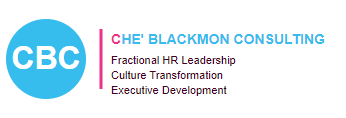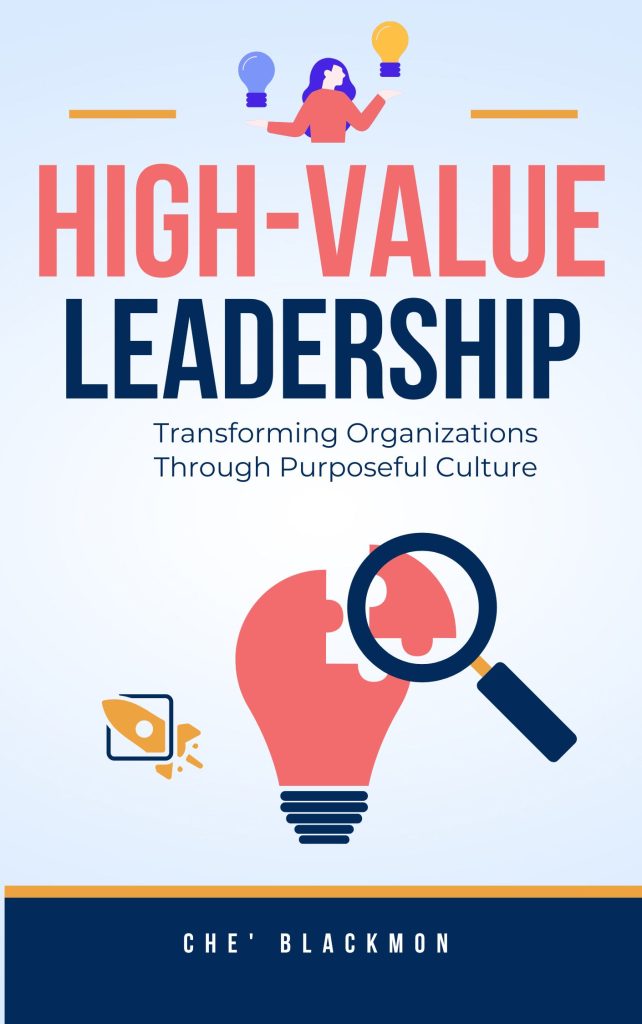The conference room goes silent when you state your number. You’ve done the research, documented your achievements, and practiced your pitch. Yet somehow, asking for what you’re worth after 45 feels like you’re breaking an unwritten rule. Add being a Black woman to that equation, and you’re navigating a minefield of assumptions about being “grateful” for what you have while fighting stereotypes about being “difficult” or “aggressive.”
Let’s address the elephant in the room: ageism and sexism don’t disappear at negotiation tables—they intensify. But here’s what changes everything: strategic preparation that accounts for these realities while leveraging the unique strengths that come with experience.
The Double Standard Nobody Talks About 📊
Research from Harvard Business Review reveals that women over 45 face a “competence-likability trap” that’s even more pronounced than their younger counterparts face. Be assertive, and you’re “abrasive.” Be collaborative, and you “lack executive presence.” Meanwhile, men the same age are seen as “seasoned executives” when displaying identical behaviors.
For Black women over 45, this becomes a triple bind. There was a financial services firm where a Black female executive with 25 years of experience was told she was “intimidating” for using the same negotiation tactics that earned her white male peer praise for being “strategic.” The difference? She was negotiating while Black, female, and over 45.
The data is sobering. Women over 45 earn 75 cents for every dollar earned by men their age, with Black women earning just 64 cents. But here’s the twist: women who negotiate after 45 with the right strategies often achieve better outcomes than those who negotiated in their 30s. Why? Experience teaches us to play chess, not checkers.
Turning “Seasoned” Into Your Secret Weapon 🎯
Your experience isn’t a liability—it’s leverage. Women over 45 bring pattern recognition that younger negotiators simply haven’t developed yet. You’ve seen enough cycles to predict outcomes, enough personalities to read rooms instantly, and enough successes to know your worth isn’t theoretical.
Consider what happened at a healthcare organization where a 52-year-old Black woman in operations finally decided to negotiate after years of accepting incremental raises. She didn’t just ask for a salary increase. She presented a comprehensive analysis showing how her institutional knowledge had saved the company $3.2 million over five years through process improvements and crisis prevention. Her ask? A 40% increase to match market rate. She got 35% plus a retention bonus.
The key was reframing experience as irreplaceable expertise. As discussed in “High-Value Leadership,” your value compounds over time—but only if you articulate it strategically.
The Expertise Advantage Framework:
- Document institutional knowledge others don’t possess
- Quantify problems you’ve prevented (not just solved)
- Highlight relationships you’ve built over decades
- Showcase your ability to mentor while executing
The Authority Pivot: Negotiating from Wisdom, Not Need 👑
There was a technology company where a 48-year-old Black woman transformed her negotiation approach after reading about “authority positioning.” Instead of asking for a raise, she presented a business case for creating a new senior role that leveraged her unique blend of technical expertise and cultural intelligence.
She didn’t negotiate from need (“I deserve more”). She negotiated from opportunity (“Here’s what I can deliver at this level”). The result? A newly created VP position with a 60% salary increase.
This aligns with research showing that women over 45 who frame negotiations around value creation rather than value claiming achieve 23% better outcomes. The shift is subtle but powerful:
Instead of: “I’ve been here 15 years and deserve a raise.” Try: “My 15 years of relationship capital can unlock three new enterprise deals worth $10M.”
Instead of: “Younger employees make more than me.” Try: “Market compensation for my expertise level is X, which would be a bargain given my proven ROI.”
Strategic Preparation: The Over-45 Advantage Playbook 📈
Women over 45 often make three critical negotiation mistakes: under-preparing because they assume experience speaks for itself, over-explaining due to imposter syndrome, or accepting first offers out of gratitude. Here’s how to flip the script:
1. The Market Intelligence Multiplier Don’t just research your role—research adjacent roles, consulting rates, and the cost of replacing you. There was a manufacturing company that discovered replacing their 50-year-old supply chain director would cost $450,000 in recruitment, training, and lost productivity. She used this data to negotiate a $75,000 raise—still a bargain for the company.
2. The Portfolio Approach Create a “value portfolio” documenting:
- Crisis situations you’ve navigated
- Relationships that would leave with you
- Proprietary processes you’ve developed
- Knowledge that isn’t documented anywhere
3. The Timing Advantage Women over 45 have seen enough business cycles to time negotiations strategically. Wait for:
- Post-crisis moments when your value is undeniable
- Budget planning seasons (not after budgets are set)
- When key projects depend on your expertise
- After successful initiatives but before new assignments
Overcoming the “Grateful” Trap 🚫
The most insidious barrier for women over 45, particularly Black women, is the internalized message that we should be “grateful” to still be employed, promoted, or considered. This gratitude trap keeps us from negotiating assertively.
There was a non-profit where a 54-year-old Black woman had accepted below-market compensation for years because she felt “lucky” to have flexibility. When she finally calculated her opportunity cost—over $300,000 in lost earnings—she realized gratitude had become exploitation.
Breaking free requires:
- Recognizing gratitude and fair compensation aren’t mutually exclusive
- Understanding that accepting less devalues the role for everyone
- Remembering that your negotiation sets precedent for others
- Knowing that companies budget for negotiation—use it or lose it
As explored in “Rise & Thrive,” Black women’s tendency to over-deliver while under-negotiating isn’t humility—it’s systematic undervaluation that we’ve internalized. Breaking this pattern is both personal liberation and collective advancement.

The Collaborative Power Play Strategy 💪
Women over 45 have learned that burning bridges is expensive. The collaborative power play involves negotiating firmly while maintaining relationships—a skill that comes with maturity.
The POWER Framework for Mature Negotiators:
P – Position with Data: Lead with metrics, not emotions
O – Offer Multiple Options: Give them ways to say yes
W – Widen the Pie: Include non-monetary benefits
E – Establish Future Value: Show long-term ROI
R – Reinforce Relationships: Maintain warmth with strength
Example: A 51-year-old marketing director negotiated a 30% raise by offering three packages: immediate full raise, phased increase over 6 months, or smaller raise with executive coaching budget and flexible schedule. The company chose option two, and she got everything she wanted within the year.
Navigating Age-Related Objections 🎭
Let’s be direct about the objections women over 45 face:
“You’re at the top of the pay scale” Response: “I’m at the top of the value scale. My expertise prevents problems that cost 10x my salary.”
“We need to maintain equity” Response: “Equity means paying people fairly for their contributions. Here’s my documented impact…”
“You might retire soon” Response: “I have at least 15 productive years ahead, and I can develop three successors in that time.”
“Younger employees need opportunities” Response: “Development isn’t zero-sum. My mentorship accelerates their readiness.”
Current Trends: The Remote Advantage 💻
The shift to remote work has created unexpected leverage for experienced women. Companies now compete globally for expertise, and women over 45 are perfectly positioned to capitalize:
- Your proven self-management makes you ideal for remote leadership
- Geographic barriers that limited options have dissolved
- Your established networks translate to virtual environments
- Experience navigating complex situations translates to digital leadership
There was a consulting firm that lost three women over 50 to fully remote competitors offering 40% higher compensation. They quickly revised their policies and pay scales, but the damage was done. The lesson? Your options have expanded—use them as leverage.
Action Steps for Your Next Negotiation 🚀
Immediate Preparation (Do This Week):
- Calculate your true market value including experience premium
- Document five problems only you can solve
- List three ways you’ve saved or earned the company money
- Research three alternative opportunities (even if not looking)
Strategic Planning (Next 30 Days):
- Build your value portfolio with metrics and stories
- Practice your pitch with someone who’ll give honest feedback
- Time your negotiation for maximum leverage
- Prepare responses to likely objections
Long-Game Strategies (Ongoing):
- Build visibility for your contributions before negotiating
- Develop alternative options to increase confidence
- Network strategically to understand market dynamics
- Document everything for future negotiations
The Compound Effect of Negotiating Now 📊
Every year you don’t negotiate compounds your losses. A $20,000 under-payment at 45 becomes $400,000+ by retirement, not including lost retirement contributions and compound interest. But beyond personal impact, your negotiation matters for others.
When women over 45, particularly Black women, negotiate successfully, we:
- Set new benchmarks for those following
- Challenge assumptions about our value
- Create precedent for age-inclusive compensation
- Model what’s possible for younger women
As discussed in “Mastering a High-Value Company Culture,” individual actions create cultural shifts. Your negotiation is never just about you.
Discussion Questions for Your Leadership Circle 🤔
- What assumptions about being “grateful” have held you back from negotiating?
- How might your negotiation success inspire other women over 45 in your organization?
- What unique value do you bring that no job description captures?
- If you knew you couldn’t fail, what would you ask for?
- How can we support each other in breaking the gratitude trap?
Your Next Power Move
You’ve earned your expertise through decades of navigating complexities others can’t imagine. You’ve solved problems, built relationships, and created value that compounds with each passing year. The question isn’t whether you deserve more—it’s whether you’re ready to claim it.
Stop letting ageism and sexism tax your earnings. Stop accepting that experience is less valuable than potential. Stop believing that gratitude requires accepting less than you’re worth.
Ready to negotiate with confidence and strategy?
Che’ Blackmon Consulting specializes in helping experienced women, particularly Black women and traditionally overlooked talent, navigate negotiations that reflect their true value. We combine 25+ years of HR expertise with proven frameworks that account for the real challenges you face.
We’ll help you:
- Build an undeniable value portfolio
- Develop age-positive negotiation strategies
- Practice responses to common objections
- Create multiple pathways to yes
- Maintain relationships while standing firm
Start your negotiation transformation today:
📧 admin@cheblackmon.com
📞 888.369.7243
🌐 cheblackmon.com
Because your experience isn’t a liability to manage—it’s an asset to leverage.
#WomenOver45 #NegotiationSkills #PayEquity #WomenInLeadership #AgeismAtWork #BlackWomenLead #SalaryNegotiation #ExecutiveWomen #LeadershipDevelopment #PayGap #WomenEmpowerment #CareerAdvancement #DiversityAndInclusion #ProfessionalWomen #HighValueLeadership


